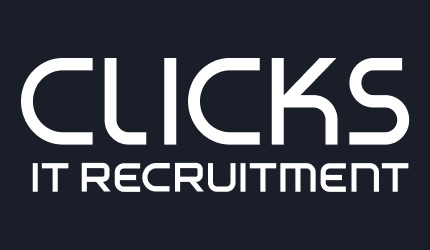If you’ve ever wondered what makes your staff happy or why they choose to stay – you don’t need a crystal ball. You just need to ask. After all, if you don’t ask, you don’t get. Conducting stay interviews is a great way to understand what motivates your team members to remain in their roles and with your company.
Hearing from your staff helps you learn more about your workplace culture, processes, and people. Information about what’s working or not working is invaluable in shaping your engagement and retention strategies.
Unlike exit interviews, you conduct stay interviews with current employees rather than staff who have handed in their notice. That way, you can act before your top performers resign and it’s too late to turn things around. So, to increase staff retention, you should conduct stay interviews.
Benefits of conducting stay interviews
- Retain top performers.
- Improve retention efforts and staff engagement.
- Support recruitment, attraction, employee value proposition (EVP), and employer brand initiatives.
- Inform People & Culture strategies, policies, and practices.
- Identify staff who are flight risks.
- Enable appropriate planning to take place.
How to conduct effective stay interviews
It’s best to conduct stay interviews as regular informal meetings. Respect, trust, and openness are essential to obtaining honest feedback.
Here are some helpful tips:
- Don’t barrage employees with too many questions. Instead, have a rough idea of the areas you would like to cover and let your team member lead the conversation.
- Walking meetings may encourage staff to relax and be less guarded when sharing feedback.
- Listen more than you talk.
- Summarise the discussion to ensure you have correctly understood what was shared.
- Ensure you address any privacy concerns.
- Outline any action you will take.
Top tip: Follow through with any commitments. Failure to deliver will be damaging to staff engagement and retention efforts.
Questions you can ask during a stay interview
Here’s 20 questions to help you get started.
- What do you enjoy most about your role?
- What do you dislike about your role?
- What are some of your current frustrations?
- What does your ideal job look like?
- What would make your experience here or your job better?
- What keeps you here?
- What would make you leave?
- Do you feel your skills and expertise are being fully utilised?
- What would you like to do more of?
- What areas would you like to develop further?
- What are your career goals?
- Do you think you will be able to achieve your career goals here?
- Do you feel that you have appropriate support?
- Do you think that you can balance your commitments at work and life outside of work?
- What do you think about how we reward and recognise people here?
- How do you like to be rewarded and recognised?
- What do you appreciate most about my leadership style?
- Do you have access to the necessary tools/technology/resources to do your work?
- What do you like most about the company?
- If you could make any changes, what change would you make?
Top tip: Don’t overwhelm your team member with too many questions. Instead, schedule regular catchups and select relevant focus areas.
Who should conduct the stay interview?
The best person to conduct a stay interview is generally the direct manager or skip line manager rather than HR. You have a better chance of eliciting genuine responses if there’s an existing relationship. Remember, the feedback won’t all be glowing, so be open to negative feedback and adopt a growth mindset.
Note: Share common themes or trends with HR to support company-wide change.
When is the best time to conduct stay interviews?
It’s best to conduct stay interviews on a regular basis. An easy way to do this is to incorporate these check-ins as part of your one-on-one catchups each quarter. However, avoid conducting stay interviews around performance review periods as you may get an overinflated positive perspective.
Who should you interview?
It makes sense to start with top performers who have been around for a while. They have more insights about your workplace and can pose a greater flight risk. However, it’s essential not to overlook your company’s new starters. Feedback from new joiners can help improve your recruitment, attraction, and onboarding strategy. Their fresh perspective supports your employee value proposition (EVP) and employer brand work.
Critical success factors
Successful stay interviews largely depend on the managers in your business feeling confident and knowing how to conduct them. That’s why it’s crucial to invest in your people leaders. Another vital element is a company culture that is trusting of management.

Understanding what motivates your staff to remain with your company helps you hang onto your top performers and attract more people to join.
About Clicks
Clicks is an award-winning IT recruitment specialist. Our recruiters average 12 years of industry experience.
We have specialist teams who are trained across each IT skill vertical. So, whether it’s permanent, contract, fixed-term, master vendor, or payroll only, we’re ready to help.
With offices in Melbourne, Sydney, Canberra, and Brisbane, we connect companies with great IT professionals across Australia each day! Register a vacancy or contact us on 1300 CLICKS today for a confidential chat.









